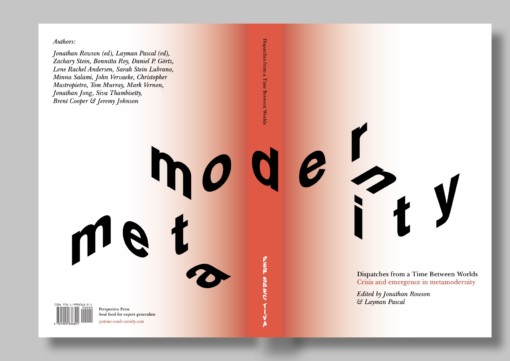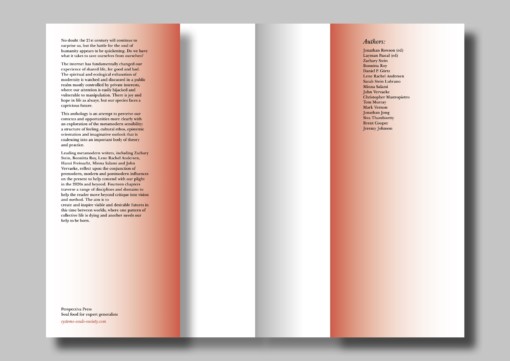
Dispatches from a Time Between Worlds: Crisis and emergence in metamodernity
The 21st century will feature a battle for the soul of humanity. We need new ways of thinking and feeling that help us survive and thrive in the world as we find it.
The internet has fundamentally changed our lifeworld for good and bad, we are contending with the spiritual and ecological exhaustion of modernity, and while there is scope for hope, we face a capricious future. And yet, shared insight into the precarity of planetary life and its elusive meaning heightens our sense of intimacy and elicits new impulses of wonder and tenderness.
This anthology is an attempt to help us perceive our context with an exploration of the premise, coherence and scope of the ‘metamodern’ sensibility: a structure of feeling, cultural ethos, epistemic orientation and imaginative outlook that has arisen over the last two decades.
Leading metamodern thinkers reflect upon the conjunction of premodern, modern and postmodern influences on the present, and go beyond critique into vision and method for viable and desirable futures. The authors aim to open a new set of pathways to enhance our sense of agency in this time between worlds, where our world system is dying and another is about to be born.


Contents
Preface: Metamodernism and the Perception of Context
The Cultural Between, the Political After and the Mystic Beyond
Introduction: The end of the beginning of metamodernism
Part One: Synoptic Context
1. Tasting the Pickle: Ten flavours of metacrisis and the appetite for a new civilisation by Jonathan Rowson
Perspectiva Press’s editor-in-chief Jonathan Rowson’s chapter, ‘Tasting the Pickle: Ten flavours of metacrisis and the appetite for a new civilisation’ is an exercise in what he refers to as ‘discriminating bliss’, conceptual distinctions that disclose the nature of our predicament as a whole and thereby help clarify the scope of our individual and collective agency.
He distinguishes between the pandemic as a reckoning, climate change as an emergency, our political economy as a crisis, and then he looks deeper at a range of related but distinct socio-emotional, educational, epistemic and spiritual meta-crises, of which he lists ten. Together these different features of our predicament form ‘the pickle’ that we are in, which he encourages the reader to taste in the sense of experiencing them viscerally and aesthetically as far as possible. The question: “Have you tasted the pickle?” is therefore a way of asking: “Have you given sufficient attention to our context writ large, and your place within it?”.
There is more than one way to conceive of the pickle we are in, and many ways to taste it, but however the current predicament is framed or experienced, all chapters in this book to some extent seek to answer the questions: how did we get here, and where might we go from here?
2. Time, Change and Causality: Notes towards a metamorphosis of mind by Bonnitta Roy
Integral Process philosopher, Bonnitta Roy, explores the metaphysical assumptions of modernity that may still underlie and perpetuate our strategies for change. These background assumptions appear to be untenable in complex systems of all kinds and no longer resonate with subjective human experience in a universe wherein causes and effects are often opaque, uncertain and plural.
Roy makes a fascinating distinction between the chrysalis and the cocoon, suggesting that the former, the time in between, is never invited and hardly ever welcomed. ‘A cocoon is an external enclosure spun out of silk that covers the pupa stage of a moth. The chrysalis of the butterfly, however, grows from within the caterpillar’s insides, eventually erupting through the skin.
The caterpillar then is the appropriate metaphor for the times we live in, where our identities at every scale – individual, social and planetary – are dissolving by forces erupting from within’. Roy goes on to suggest that we who navigate this time between worlds think of ourselves as ‘the extemporarians’: ‘…the people to create enduring acts of inspiration and imagination for others to find when this world finally comes to an end’.
3. Becoming the Planetary by Jeremy D. Johnson
In ‘Becoming The Planetary’, Jeremy Johnson highlights a growing awareness of the planet as our cosmological context, an object of inquiry that is both vast relative to our own agency and tiny relative to its interstellar setting, but it’s now where we glimpse our own contingency and fragility, and in which we navigate the interagency of the human and the non-human.
As he puts it: ‘The planetary assists us in our own process of decoupling from our fixation with the modern, post-, meta- or otherwise. If we are to go meta, then, we should bring the concept of the planetary with us’.
Part Two: Metamodern Conundrums
4. Disarm the Pedagogical Weaponry: Make education not culture war by Zachary Stein
In ‘Disarm the Pedagogical Weaponry: Make education not culture war’, philosopher of education, Zak Stein, examines the contemporary predicament of education in the shadow of the culture war. What is novel today, argues Stein, is that a generation growing up in relative physical safety are nevertheless endangered in the crossfire of a culture war.
The chapter looks deeply at the idea of culture war and its broader ramifications for societal continuity and renewal in the context of education broadly conceived, in a time when the boundaries between education, culture and technology are increasingly hard to draw.
‘What does it really mean to have a war without physical violence, to have a culture war? It means simply that the drivers (motivations, generators, incentives) of cultural production and innovation are made akin to those of warfare, where dynamics of force and power override action oriented towards mutual understanding and cooperation…the deep structure of ‘war’ is something like a competitive social situation of pure strategic interaction in which the motive for optimising personal advantage is primary because the costs of failure are catastrophic’.
5. Metamodernism, Simplicity, and Complexity: Healing Developmental Models Through Involutionary Descent by Tom Murray
In ‘Metamodernism, Simplicity, and Complexity: Healing Developmental Models Through Involutionary Descent’, Integral philosopher and Educationalist, Tom Murray, explores the risk that we are constrained by our models of growth, development and change. Our tendency to fetishise either simplicity or complexity as a linear aspiration can sabotage the general applicability of the ideas with which we approach problem solving and human maturation.
As Murray puts it: ‘learning and growth do not progress through a pure ‘simplexity’ that ‘transcends and includes’ the best of prior forms, but rather that they inevitably introduce elements of shadow, demi-reality, contradiction and/or trauma into psychological and social systems…any theory of human development must explicitly include processes for release, unlearning, healing, and/or ‘shadow work’ in addition to modelling complexity’.
6. Metamodern Sociology: An ironically sincere invitation to future scholars by Hanzi Freinacht
Hanzi Freinacht lives ‘at the crossroads of fact and fiction’ and his chapter, ‘Metamodern Sociology: an ironically sincere invitation to future scholars’, is introduced by Daniel Gortz, who finds him there. Daniel wonders on Hanzi’s behalf: ‘If sociology is the social science that views society as society, is then there not an intrinsic link between, on the one hand, sociological understanding and research and, on the other hand, a philosophy that seeks to eject itself from the conceptual, cultural, political and spiritual confines of modern society – metamodernism? Hanzi argues that, yes, this is the case’.
One of the major contributions of this chapter is the six-fold classification of metamodernism already mentioned: ‘Metamodernism is thus both a cultural phase, and a developmental stage of society, and an abstracted meta-meme, and a stage of personal development (with different complexly intertwined sub-categories thereof), and a philosophical paradigm, and a movement with a certain project for culture and society’.
Hanzi argues that it is imperative to specify which of these is being invoked at any given moment, and that seems right, though due to their overlapping and cross-pollinating nature I would suggest that is easier in slow-motion analysis than in most communicative contexts.
7. Liza’s Bucket: Intellectual Property and the Metamodern Impulse by Siva Thambisetty
In ‘Liza’s Bucket: Intellectual Property and the Metamodern Impulse’, Legal Scholar, Siva Thambisetty, calls upon an old folk song to explore some root causes of the apparent sclerosis of our current economic system and sketches out the contours of a metamodern analysis of intellectual property law, particularly patents.
The rationales that lead to our legal organisation of the ownership of ideas are almost entirely hidden from public view, and yet they manifest as pervasive institutional logics that reinforce forms of thinking, valuing and justifying that militate against many of the proposed transformative approaches outlined in the other chapters here. In her own language, we need to better understand ‘the psychoactive content’ of IP rights that shape our inner lives and therefore our experience of culture and politics.
8. But Do You Have a Vegetable Garden? Cultural codes and the preconditions for a successful metamodern economy by Lene Rachel Andersen
In ‘But Do You Have a Vegetable Garden? Cultural codes and the preconditions for a successful metamodern economy’, philosopher, author of The Nordic Secret (with Tomas Björkman), Both/And, Metamodernity, and Bildung, Lene Rachel Andersen offers the contours of a new economic model inspired and informed by metamodernity that takes the best from the ‘four main cultural codes’ of human history, prehistoric indigenous, premodern, modern and postmodern, each with its unique kind of economy.
The underlying principle is to model the economy on life, manifest as patterns of evolving self-organising complex systems, with Andersen describes as ‘loops’; ‘multitudes of parallel loops within loops allow systems that are open and dynamic to be stable and self-coherent over time’.
The challenge at scale is to somehow gradually incorporate the right kinds of loops from the best and most complementary features of each of the cultural codes, such that the economy undergoes a beneficial phase transition; in that case capitalism becomes one mechanism among many in a much richer economic paradigm or fabric; a truly mixed economy.
9. The Conundrum of Cognitive Dissonance: on the uneasy relationship between agency and understanding, and why it matters by Sarah Stein Lubrano
In ‘The Conundrum of Cognitive Dissonance: on the uneasy relationship between agency and understanding, and why it matters’, Political Theorist, Sarah Stein Lubrano, reflects on the nature of political agency, whether it might be thought of as a necessary illusion, and the kinds of discomfort that follow from the experience of having it, particularly in relation to cognitive dissonance.
Is it possible that the intense discomfort of such dissonance may lie at the root of political apathy? Stein writes: ‘…Passionate certainty and disengagement may appear to be opposing tendencies, but in many cases these are fueled by the same underlying motivation: the desire (sometimes unconscious) to avoid facing and feeling responsibility for one’s ambivalence, uncertainty and contradictory beliefs’.
The challenge is to collectively rework our relationship to decision-making so that we are less pressured into strong opinions or disengagement, such that we become more free than we currently are, if only in our capacity to change our minds.
Part Three: New frontiers
10. Manifesting Mass Metanoia: Doing Change in Trying Times by Brent Cooper
Political Sociologist and Metamodern Activist, Brent Cooper, writes about ‘mass metanoia – a social transformation, paradigm shift, systems change, etc.’ which is described as ‘a necessary possibility’. While some limit metamodernism to a broadly descriptive endeavor, Cooper makes an impassioned case for why metamodernism can and should be politically normative.
He describes seven major interrelated ‘turns’ of metanoia for the metamodern spirit: to know the history of metanoia, to see the cognitive roots of metanoia and its social implications, to use metanoia as leverage to intervene and overturn capitalism’s pathologies, an explicit metamodern turn in sociology and society, the role of religion in the post-secular age, feminist praxis, and finally, the fundamental choice between metanoia over paranoia in the context of our historic bifurcation in which postmodernism morphs into metamodern or hypermodern trends.
11. Gnosis in the Second Person: Responding to the meaning crisis in the Socratic quest of authentic dialogue by John Vervaeke & Christopher Maistropeitro
If part of the challenge we face is that we are trapped with the limitations of first and third person ways of knowing, we need to restore and reimagine the intellectual dignity of the art of conversation, which is viewed here as ‘second person’. Vervaeke and Maistropeitro introduce the idea of Dialogos, which they describe as ‘a practice of onto-intimation that discursively disciplines our existential attitudes by arranging our loves to seek self-transformation’.
This line, like many in the chapter, is extraordinarily rich and challenges the reader to pause and reflect. Stated somewhat more directly, in the authentic discourse of dialogos ‘you cannot know without also being known, cannot be known without also being changed, and cannot be changed without changing your capacity to know’. Grounded in a meta-theory of (embodied, embedded, enactive and extended) cognition, the authors explore dialogos in the context of four main ways of knowing: propositional, procedural, perspectival and participatory.
With these tools, and many others, the authors provide a philosophically profound exploration of the need to resurrect the art of dialogue as a crucial trans-rational skill set for sense-making, meaning-making, and the perhaps even the encounter with Spirit.
12. On Identity Erotics: A Metamodern Alternative to ‘Identity Politics’ by Minna Salami
In ‘Identity Erotics: A Metamodern Alternative to ‘Identity Politics’, Feminist Theorist, Minna Salami, proposes the radical idea, distantly inspired by Elinor Ostrom, that identity itself should be viewed as a kind of commons. She indicates that when we pay closer attention to identity formation, the human tendency is ‘to anchor a sense of self in parameters of meaning, rather than towards a particular group’.
In that sense, the idea of identity erotics, characterised not merely as sexual desire but as intimate togetherness in all its forms, is a relatively untapped parameter of meaning available within our shared social reality. The challenge is to situate ourselves and each other in patterns of togetherness characterised by the reciprocated awareness of unique, manifold and evolving interiorities. Salami suggests that this ’embodied, embedded and relational dynamic’ may be necessary to move beyond identity politics.
Ultimately, identity erotics can help to foster a relational sensibility of connection and care for strangers simply based on the shared, intimate complexity of being human.
13. On Committed Uncertainty: A dialogue concerning mystery, metaphysics and metamodernism by Jonathan Jong and Mark Vernon
In ‘On Committed Uncertainty: A dialogue concerning mystery, metaphysics and metamodernism’, psychotherapist, philosopher and ex-Anglican priest, Mark Vernon, speaks with theologian and cognitive scientist, Jonathan Jong, ‘On Committed Uncertainty’.
Today’s religion often expresses a limited dogmatic view and focus on the individuals’ personal beliefs about reality rather than open-minded, interpersonal relational exchange. Theology and faith are limited in ways we must escape that have given rise to the current stand-off between spirit and science. This discussion also serves as a somewhat skeptical and cautionary note on metamodern zeal, or relying too much on that term and what it represents.
With this context in mind Jonathan Jong suggests ‘…we don’t have to make – inevitably by force – this world into some other world of our fantasies. It already is heaven…’. Mark Vernon expresses a similar underlying counterpoint like this: ‘Postmodernity or metamodernity or hypermodernity has an epicycle feel, like a series of footnotes to modernity. The way out is to make the inward turn, to foster the capacity to perceive further dimensions to the world, upon which the world rests’.
Jonathan Jong later responds:… ‘You ask about the ‘problem of metamodernism’, but if this incarnation of the eternal recurrence of prefixes entails a retrieval of metaphysics – in a second naivete, as Paul Ricoeur might say – then this time, we might have a way out of our rut after all. Much depends on whether our cynicism will triumph over our courage to believe in things unseen, or at least to essay towards such mysteries’.
14. The Metamodern Spirit: Approaching Transformative Integration in Psyches and Societies by Layman Pascal
Finally, in ‘The Metamodern Spirit Approaching Transformative Integration in Psyches and Societies’, co-editor of this volume, spiritual philosopher, co-founder of The Integral Stage podcast, Layman Pascal, uses his integration surplus model of post-metaphysical spirituality and religion to bring together several of the major themes explored in the previous chapters, attempting to clarify the main thought style of metamodernists and authentically call them to pride and forward momentum in the need to cultivate. Only a renaissance can solve a metacrisis.